Search
Search Results
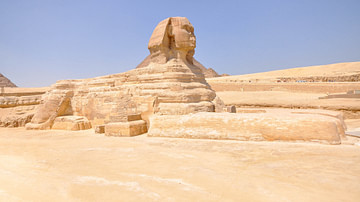
Definition
Ancient Egypt
Egypt is a country in North Africa, on the Mediterranean Sea, and is home to one of the oldest civilizations on earth. The name 'Egypt' comes from the Greek Aegyptos which was the Greek pronunciation of the ancient Egyptian name 'Hwt-Ka-Ptah'...
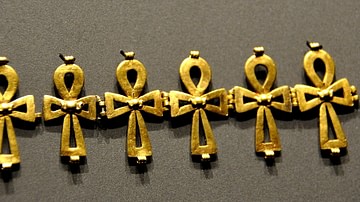
Definition
The Ankh
The Ankh is one of the most recognizable symbols from ancient Egypt, known as "the key of life" or "cross of life" and dated to the Early Dynastic Period (c. 3150 - 2613 BCE). It is a cross with a loop at the top sometimes ornamented with...
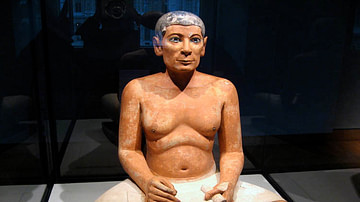
Definition
Ancient Egyptian Government
The government of ancient Egypt was a theocratic monarchy as the king ruled by a mandate from the gods, initially was seen as an intermediary between human beings and the divine, and was supposed to represent the gods' will through the laws...
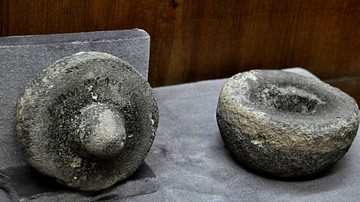
Definition
Mesopotamian Science and Technology
Mesopotamian science and technology developed during the Uruk Period (4100-2900 BCE) and Early Dynastic Period (2900-1750 BCE) of the Sumerian culture of southern Mesopotamia. The foundation of future Mesopotamian advances in scientific/technological...
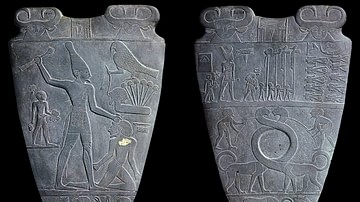
Definition
Narmer Palette
The Narmer Palette (also known as Narmer's Victory Palette and the Great Hierakonpolis Palette) is an Egyptian ceremonial engraving, a little over two feet (64 cm) tall and shaped like a chevron shield, depicting the First Dynasty king Narmer...
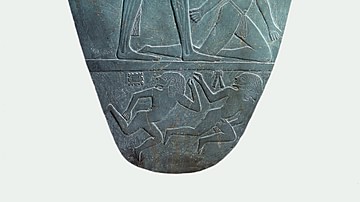
Definition
Narmer
Narmer (c. 3150 BCE) was the first king of Egypt who unified the country peacefully at the beginning of the First Dynastic Period (c. 3150 - 2613 BCE). He has also, however, been cited as the last king of the Predynastic Period (c. 6000 -...
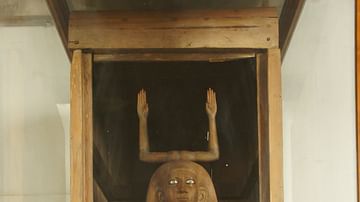
Definition
Heka
Heka is the god of magic and medicine in ancient Egypt and is also the personification of magic itself. He is probably the most important god in Egyptian mythology but is often overlooked because his presence was so pervasive as to make him...
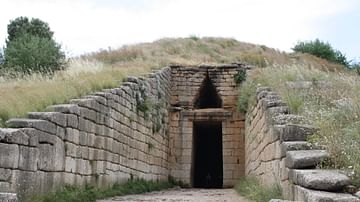
Definition
Tomb
A tomb is an enclosed space for the repository of the remains of the dead. Traditionally tombs have been located in caves, underground, or in structures designed specifically for the purpose of containing the remains of deceased human beings...
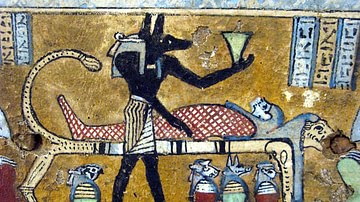
Definition
Anubis
Anubis (also known as Inpu, Inpw, Anpu) is the Egyptian god of mummification, funerary rites, guardian of tombs, and guide to the afterlife as well as the patron god of lost souls and the helpless. He is one of the oldest gods of Egypt, most...
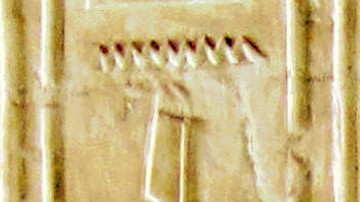
Definition
Menes
Menes (c. 3150 BCE) is the legendary first king of Egypt who is thought to have united Upper and Lower Egypt through conquest and founded both the First Dynasty and the great city of Memphis. His name is known from sources such as Manetho's...